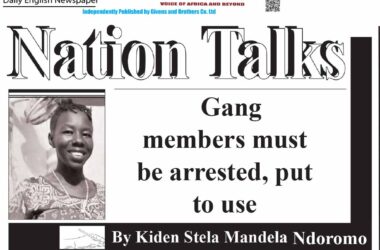The increasing insecurity in Nasir County and other parts of the country is attributed to the failure to implement the peace agreement and the need to unify the army under one command.
This lack of action is contributing to ongoing insecurity, including the loss of generals and officers, civilian displacement, and the loss of lives and property.
Since civil war, fueled by ethnic divisions, broke out in 2013, violence against women and girls has become even more pronounced. From 2013 to the end of 2018, soldiers on both sides of the conflict utilized sexual violence and torture, particularly against women and girls, as part of their military strategies. Additionally, the complete breakdown of the rule of law allowed armed individuals to act with impunity throughout the conflict.
In 2022, of the 52,102 unified forces—comprising the army, police, wildlife, prison, civil defense, and national security forces—screened and streamlined, approximately 7,500 were unified in Unity State. The expectation was that with this integration, insecurity issues would significantly decrease.
However, concerns remain that since the graduation took place in August, there has been a lack of distribution of resources, including weapons and salaries. While the government claims no guns are being issued, firearms remain in the hands of untrained civilians, exacerbating the insecurity. This situation has resulted in a continued presence of mobile soldiers across the country, as proper disarmament has not been conducted and a national army has yet to be established, leading to ongoing conflicts over interests.
The transitional period was established through the revitalized peace agreement by the warring parties, and the government developed an extension roadmap to maintain the legitimacy of national unity.
However, the onus is on the government to demonstrate its capability to implement domestic solutions to the conflicts that have devastated the nation for many years. The revitalized agreement was seen to be influenced by foreign interests, complicating its implementation. Leaders must foster a culture of trust and good working relationships, which will strengthen peacebuilding efforts in the country. Citizens will also build trust based on these positive actions and may invite support from the international community.
It is difficult to understand the ongoing situation in South Sudan, where civilians feel threatened and unable to access their livelihoods. They are often restricted to headquarters, even though the army is supposed to protect civilians as outlined in Chapter 2 of the revitalized peace agreement.
The principals of the agreement must come to a consensus to continue the implementation of peace and ensure stability across the country.
I urge the government to provide security for the people of South Sudan, as the current state of affairs indicates a lack of peace. Investigations must occur, and those responsible for insecurity should be held accountable.
God protect South Sudan.
Be the Spectator




